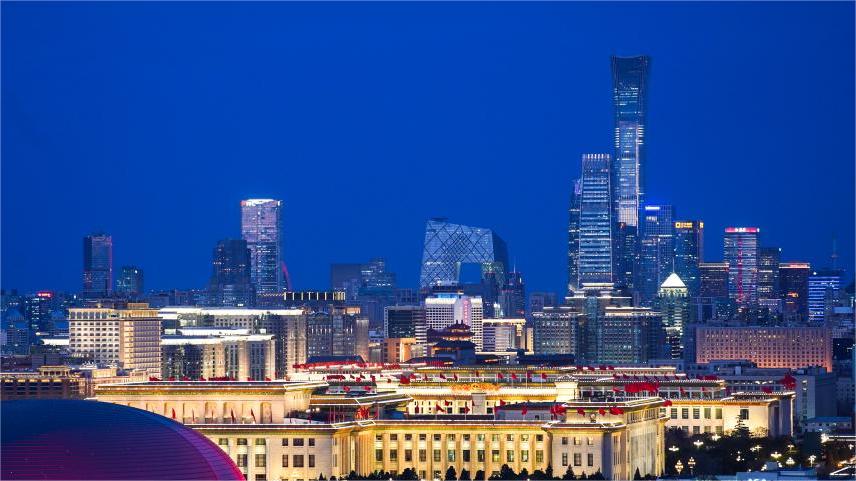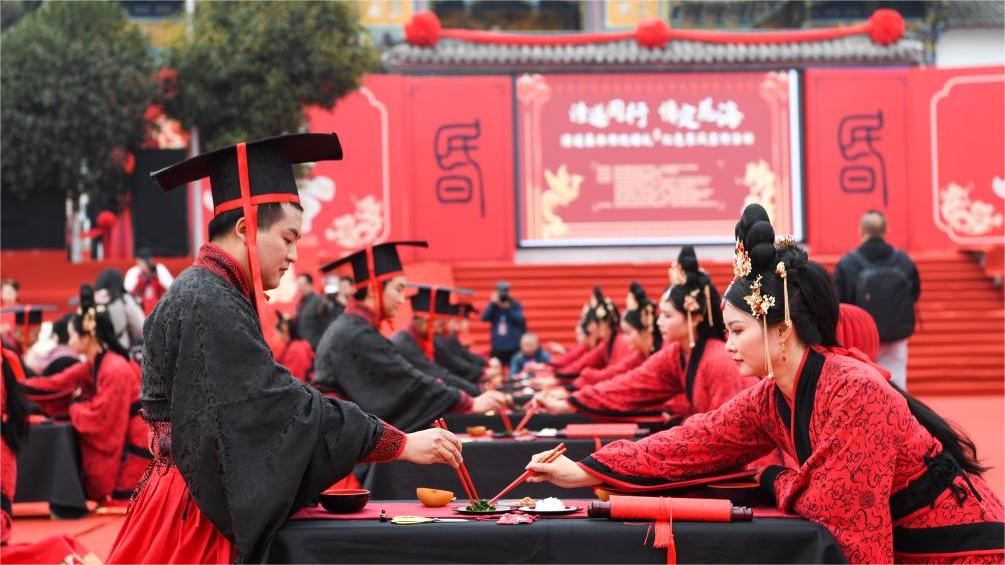What and how will China reform in the future?
BEIJING, March 12 (Xinhua) -- Chinese leader Xi Jinping has sounded the clarion call for reform during the country's annual key political season, dispelling concerns about whether China's reform is "stagnating," or its economy is "losing steam."
"We must plan major moves to deepen reform to inject strong impetus into promoting high-quality development and advancing Chinese modernization," President Xi said at the annual sessions of China's top legislature and top political advisory body, or the "two sessions," which wrapped up on Monday.
Observers believe that it is because Xi himself is the helmsman of reform in the new era that the socialist market economy heralded by Deng Xiaoping can continue.
China is currently at a critical juncture, where Xi is leading the country to realize the ambitious "Chinese modernization," while being confronted with major challenges, such as downward economic pressure following the COVID-19 pandemic, rising protectionism and suppression from Western nations, and risks associated with the real estate sector, local government debts, and some small and medium-sized financial institutions.
What and how will China reform in the future? The question is drawing worldwide attention.
At the "two sessions," Xi stressed deepening reforms in various sectors "to remove the barriers obstructing the development of new quality productive forces."
The crucial role of reform was also highlighted in the government work report.
It devoted a section to deepening reform, with a focus on improvements to systems underpinning the socialist market economy, such as property rights protection, market access, fair competition, and social credit. "Ultimately, high-quality development depends on reform," it wrote.
This year's "two sessions" sent the signal that China plans to establish "pilot reform zones for building a high-standard socialist market economy."
The goal is to foster "a world-class business environment that is market-oriented, law-based, and internationalized," where state-owned enterprises, private businesses, and foreign-funded companies all play an important role in China's modernization drive.
In addition, new reform measures will be introduced to foster new industrial growth engines, promote consumption growth, expand the middle-income group, and ensure equal access to basic services. These initiatives are expected to further unpack tremendous business opportunities in a market of over 1.4 billion people.
China is pushing for accession to the Comprehensive and Progressive Agreement for Trans-Pacific Partnership.
A Ministry of Commerce spokesperson said that China is willing to deepen reforms continuously, strive to meet the high standards required by the agreement, and make high-level opening-up commitments beyond its existing practices in the area of market access.
There are reasons to be optimistic about the prospects of reforms under the leadership of Xi.
This optimism is not only based on China's enormous economic and market size but also the unified leadership of the Communist Party of China with Xi at the core. The Party has the guts for self-reform and is capable of turning blueprints into concrete actions.
Furthermore, China is still a developing country with substantial growth space and potential.
Some Western observers perceive China's growing economic strength as a threat and China's large market as a "tool of economic coercion," fueling the attempt to decouple with or impose a blockade on China. These views need to be changed.
China's reforms are not intended to change or challenge the world order. Instead, the country is actively engaging in and impacting global economic governance, upholding fairness and justice on the world stage.
Xi has inherited and carried forward Deng's legacy through comprehensively deepening reform. This not only created economic miracles but also displayed the charm of the Chinese culture, contributing to the creation of a new form of human civilization.
"Our modernization is both the most challenging and the greatest," said Xi. "This is an unprecedented path, but we will continue to explore it and forge ahead with courage."
(This article is an excerpt of the Xinhua story titled "Profile: Xi Jinping the reformer," which was released Tuesday.)
Photos
Related Stories
Copyright © 2024 People's Daily Online. All Rights Reserved.









